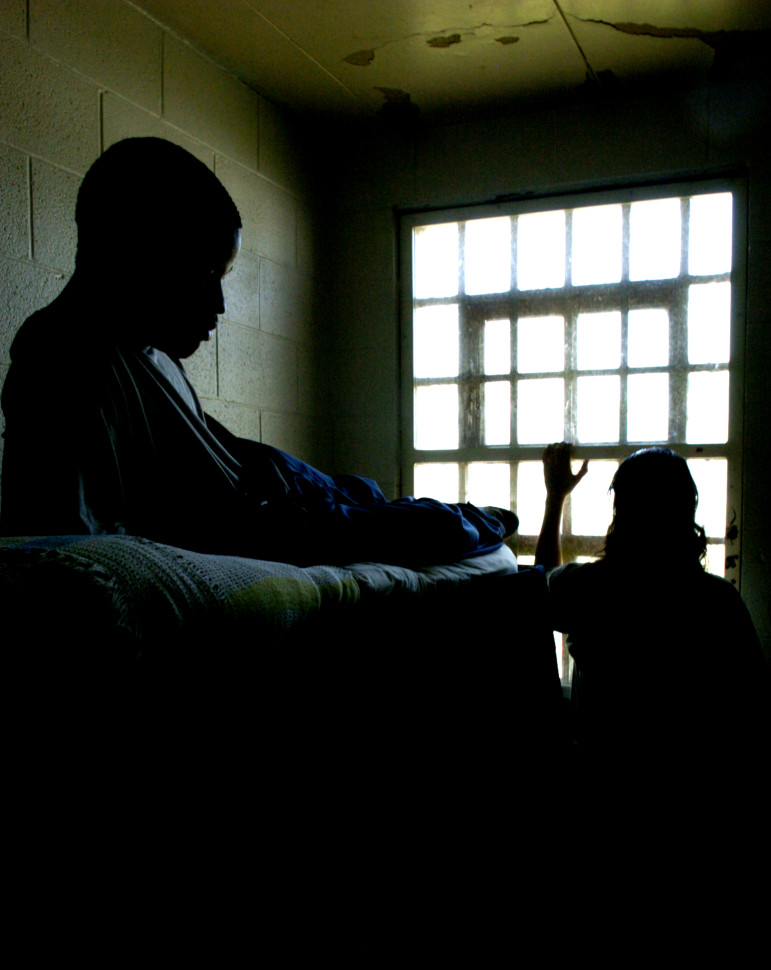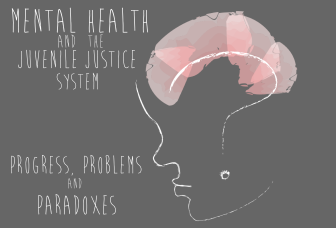Next step in consent decree reached after ACLU lawsuit lays out ambitious agenda

Antonio Perez/Chicago Tribune/MCT
Youths inside their confinement rooms at the Illinois Department of Juvenile Justice Center on Tuesday, August 1, 2006, in Joliet, Ill.
CHICAGO -- The Illinois Department of Juvenile Justice and the American Civil Liberties Union have four months to review expert reports on the IDJJ’s psychological and mental health, educational, and safety and welfare services, and then draw up plans to address numerous systemic deficiencies identified by the experts in those areas.
The reports, released on Sept. 23 and reviewed briefly during a federal court status hearing before Judge Matthew Kennelly here three days later, cover complaints raised in a September 2012 ACLU lawsuit against IDJJ, RJ vs. Bishop, which quickly led to a consent decree last December.

Katy McCarthy / JJIE
Read more from the series: Mental Health and the Juvenile Justice System: Progress, Problems and Paradoxes.
The psychiatric and mental health report prepared by Dr. Louis J. Kraus of Northbrook, Ill., notes that the consent decree requires the preparation of a remedial plan that ensures provision of adequate mental health services for all IDJJ youth.
This plan needs to include “but not [be] limited to” screening and assessment, ongoing monitoring, appropriate treatment planning, individualized provision of services, timely and confidential access to appropriate professionals, appropriate suicide prevention, prescription and monitoring of psychotropic medications, prompt hospitalization when needed, substance diagnosis and treatment, juvenile sex offender treatment, and aftercare and discharge planning.
In preparing his report, Kraus visited at all six Illinois Youth Center facilities, where he conducted visual inspections and confidential interviews with “scores” of a cross-section of youth, reviewed “scores” of mental health files, interviewed top mental health and other administrators as well as IDJJ leadership and reviewed thousands of pages of documents.
Overall, Kraus’ report finds bright spots but mostly sees areas in need of improvement. “It is difficult to fully assess the workings of mental health treatment at the IDJJ, because 1) they do not have a full complement of services, and 2) even with the groups they have right now, a number of the facilities cannot function because of the paucity of security,” Kraus wrote. “No matter how many groups are described as evidence-based, and no matter how much support is being described for these groups, they are not actually functioning, consistently.
“The reality is that many of these youth are not getting the mental health support they need,” he continued. “In my opinion, unless there is stronger support from the state to get the staff which is needed, these youth’s basic mental health needs are not going to be met.”
Kraus notes that both the youth and the department itself are “complicated” and that IDJJ has taken some positive steps led by Dr. Jennifer Jaworski, behavioral health service administrator. “I was quite impressed by the attempts by superintendents to balance some of the complexities of security and mental health, as well as some of the significant problems they have had with the education system,” he wrote. “The majority of these youth can be helped. However, if comprehensive programming is not put into place, they are going to be at much higher risk for recidivistic behavior.” (See sidebar for details on his recommendations.)
The IDJJ, which has talked at length with JJIE about the lawsuit and consent decree on two previous occasions (See here and here), declined to be interviewed for this article. “DJJ is continuing to review the reports in detail and working with our counsel to develop a proposed plan of correction with the Plaintiffs’ counsel as set forth in the Consent Decree,” wrote department spokeswoman Jennifer Florent in an e-mailed statement. “We would welcome a discussion after a plan of correction has been approved by the court.”
ACLU lead attorney Adam Schwartz says the plaintiff’s side of the case was saddened but not surprised by the conclusions of the reports. “We think it’s all on target,” he said. “Our complaint alleged systemic problems in mental health care and other areas, and the experts found systemic problems in those areas.”
Schwartz expressed confidence that the ACLU and IDJJ “are on the road to reform. These reports are the beginning of the process and not the end of the process. We are going to spend the next four months preparing the remedial plan to submit to Judge Kennelly, and after that we’re going to spend years implementing and monitoring. We are optimistic that this process is going to work, and we look forward to working with the department to create systemic solutions to the systemic problems.”
Asked about the potential budgetary implications of Kraus’ battery of recommendations, Schwartz says it was premature to think about that issue and added that he hopes IDJJ will reduce the number of youth confined in its facilities from the current 900.
“Obviously they need to be spending more money per kid than they are now, if they’re going to give a full day of school, and they’re going to give the high-need mental health kids the treatment they need,” he said. “Mathematically, there’s two ways they can do that: reduce the number of kids on the inside, or increase the staffing. There’s a lot of moving pieces here, and we’re hoping some kids get out.”
During the federal court status hearing on Sept. 26, Kennelly suggested that IDJJ and the ACLU follow up on a recommendation to solicit feedback from the chief judge of juvenile court in Cook County, by far the state’s largest. “It wouldn’t hurt to think about that,” said Kennelly, who will conduct another status hearing in December. “I just throw that out there.” The plaintiff’s side would be supportive “of bringing in other stakeholders at the appropriate time,” Schwartz responded. “Point well taken. We appreciate that.”

ALERT!
Many issues that “professionals” want to label as “mental illness”, is simply a LACK of proper counseling!
On average, our youth(and adults), do NOT need to be medicated with psychotropic drugs! They need to be shown love and support, not abuse and punishment because they do have the capacity to speak up about what’s bothering them!
In many cases, they are overlooked and ignored because these “professionals” are so focused on covering up the medicare/caid FRAUD that is so rampant here in Illinois!
Also, the ABUSES(including rapes), that our loved ones are subjected to(by guards and these other so-called “professionals”(psychcrimes.org), is a KEY problem for our loved ones!
The excuses used by these “professionals” (to punish our loved ones), is obsurd and prosecutorial!
It is HIGH TIME, for MORE ‘INTERNAL’ investigations to be done concernign these facilities that our loved ones, are housed in!
Pingback: Mental Health, Other Experts Weigh in on Illinois DJJ – Juvenile Justice Information Exchange | Supervision Today